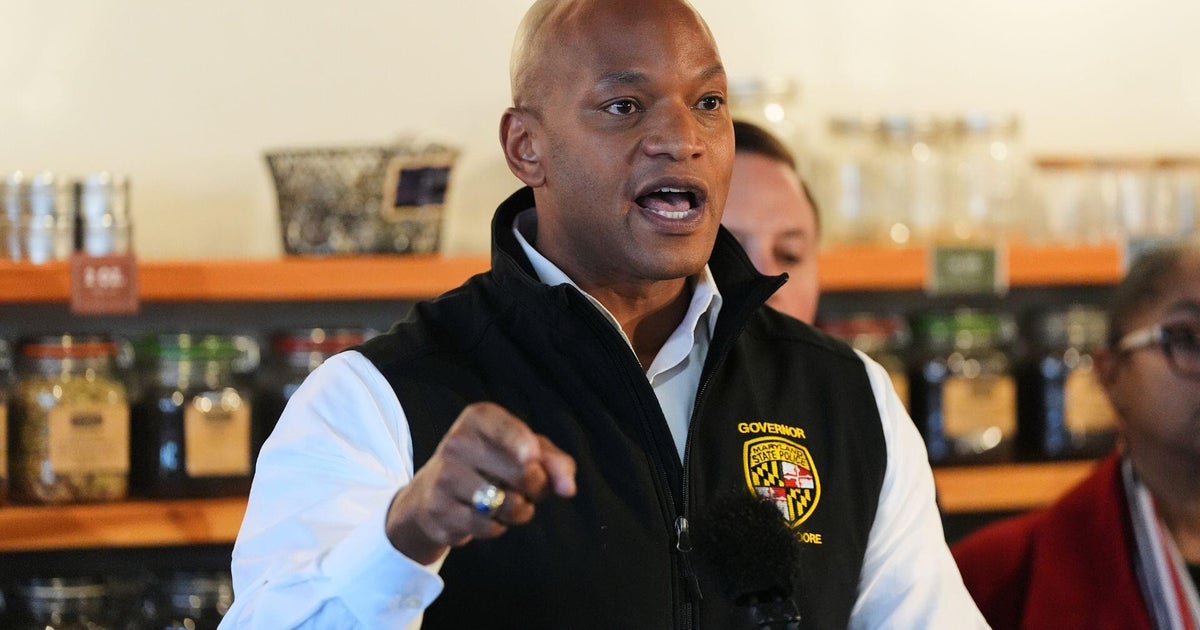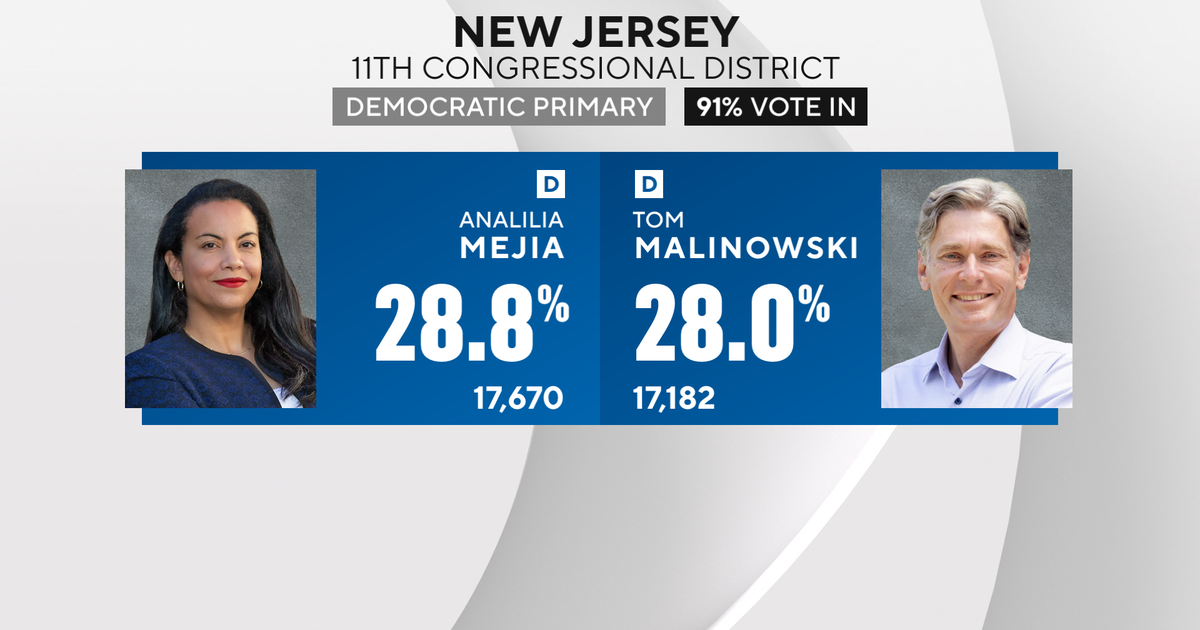Gov. Brown Says 'Wheels of Fortune' Turned Against Democrats, Defends Pelosi
SACRAMENTO (CBS SF) -- California Gov. Jerry Brown defended House minority leader Nancy Pelosi (D-S.F.) in a television interview on Sunday in which he called for Democrats to field "better candidates" to regain lost political ground.
Speaking on NBC Meet the Press with Chuck Todd, Gov. Brown also addressed the use of wedge issues like abortion, and suggested that Democratic Party candidates ought to reflect the ideological diversity which prevails in his and other states.
FULL TRANSCRIPT:
CHUCK TODD: Joining me now is the Democratic governor of California, Jerry Brown. Governor Brown, welcome back to Meet the Press, sir.
GOV. JERRY BROWN: Well, thank you. I've been doing this a long time.
CHUCK TODD: I know you have and we like having you as a guest. This week, the ranks of Democratic governors shrank by one. Jim Justice, the governor of West Virginia, publicly switched parties. Did so at a big event with the president. We can debate the authenticity of Governor Justice and how long he was a Democrat versus a Republican, but the numbers are stark. We're down to 15 governorships for the Democrats; we're up to a record number 34 for the Republicans. How did the Democrats get into that mess?
GOV. JERRY BROWN: How did they get into the mess? Well, that's quite a story. A number of factors. Certainly, the Republicans had something to do with it. The barrage, the relentless drumbeat of opposition that's been well financed by the Koch brothers, by other Republican activists. That's been effective. I think the Affordable Care Act was stigmatized. It was very large. It was something very new. That became a big problem. And I think also just the historic turn. You know, if you look at George Bush, Sr.; he was followed by Clinton; Clinton was followed by Bush; Bush followed by Obama; Obama, now we didn't get Hillary, we got Trump. So the wheels of fortune in politics turn. And I've seen cases where, when Lyndon Johnson won overwhelmingly against Goldwater, people were writing, and I read it at the time, that the Republican Party was gone. And then it comes back, and the Democratic Party comes back. So the nature of our business is that swing of the pendulum, and it is definitely already swinging back toward a non-Republican kind of future.
CHUCK TODD: Okay, obviously you believe and you just outlined that some of this can be cyclical in nature. I hear you there. There was an interesting survey though conducted on behalf of House Democrats, the House Democratic leadership, when they're trying to figure out how have they lost touch with white, working-class voters, non-college educated white voters. And in this survey, it noted that there's a lot of work to do. There's a lot of distrust, if you will, from these white working-class voters, who were Democrats 20 years ago, 30 years ago, and do not trust the Democrats even on the economy now. How did that happen?
GOV. JERRY BROWN: It happened because the global economy is changing. America is losing manufacturing jobs both to foreign countries, but also to technology, automation, innovation, and all of that. So we're going through a real transition. If you look at democratic countries around the world, whether it's South Korea or Brazil or in Europe, there's a lot of discontent. And that discontent is because, I believe, that the foundations, the very basis of our expectations, particularly working people, people in the middle class, people in more vulnerable positions, highly insecure. And what do you do about that? They're skeptical of more government because governments in power have been presiding while people's life chances have deteriorated.
In America, college education has gone from essentially free to now we have a trillion dollars of debt. Home prices are out of the reach of many people. And jobs, downward mobility, insecurity, and all the rest of it. This is a global phenomenon, and Democrats have been the champion of working people, and they haven't been able to deliver in face of these global trends. And, yes, you'd have to say that leadership has not been clever enough, or strong enough, or perhaps visionary enough.
CHUCK TODD: Well, it's interesting you say that because I looked that survey, and you look at specific policy proposals I've seen Democrats offer over the years, and you think, "Okay, that is addressing a concern you hear from working class America." But I've watched a lot of these elections and they're not decided by the economy, they're decided by culture. And it seems this is the bridge that Democrats have to figure out how to cross, or move past, if they're ever going to have majorities in some of these states.
GOV. JERRY BROWN: Well, that's another aspect of this global change. We've seen the mainline churches lose membership; the pews are more empty than ever before. And what is acceptable today was unthinkable 50 years ago. So there is a cultural shift with the economic shift. And then the influx of new people, visitors, immigrants, and all the rest of it, it's quite shocking. And speaking as someone who's been around for quite a while, my first office was in 1969, the atmosphere, the political picture of what we perceive and experience is profoundly different. And that scares people. And the Republicans have been pretty good at working that issue. But no one, Republican or Democrat, has really been able to return security and a sense of well-being to all those parts of America that are so anxious and concerned about the way the world is going.
CHUCK TODD: Well, you mention about how you thought you maybe the national Democratic leadership hasn't been clever enough, perhaps either on the economic issue and--
GOV. JERRY BROWN: Or visionary enough. I don't want to make the point, because it isn't true, that it's just a matter of clever. No, it takes values, believing in right and wrong and a sense of what America's all about. And it takes a certain vision, how the hell do we get out of this? And it takes some political skill at the same time. All three of those things.
CHUCK TODD: One of the reasons I wanted you on this show to talk about this specifically is because you've seen so many of these moments inside the Democratic Party. Some would argue you've symbolized them. I'm going to play clips from two different announcement speeches of yours. One is for president in 1992, and one is for governor in 2010. Take a listen, and I want to talk about it on the other side.
JERRY BROWN File Tape Clip No. 1: Our democracy has been the object of a hostile takeover engineered by a confederacy of corruption, careerism, and campaign consultants. The leaders of Washington's incumbent party, both Democrats and Representatives, have failed their duties.
JERRY BROWN File Tape Clip No. 2: Republicans and Democrats, oil companies and environmentalists, unions and businesses, we need to work together as Californians first.
CHUCK TODD: You could look at that and say, "Boy, first Jerry Brown sounded like Bernie Sanders. Second Jerry Brown sounded more like Hillary Clinton," to put it in 2016 context. What's your take of the two differences between the two Jerry Brown announcement speeches there?
GOV. JERRY BROWN: By the way, you're wrong. They fit perfectly together. The first one is calling attention to the bankruptcy of Washington, which we're now talking about. The second one is saying, "Okay, the solution to that bankruptcy is leadership that can work together across party lines, across the various interest groups." So one is the problem, and the other's the solution.
CHUCK TODD: Well, there you have the rub, and I say this because what do you do? How do you tell the Democratic base that says, "Look, sometimes you've got to compromise." So, for instance, the issue of abortion. We talked about culture. You've got some inside the Democratic Party, some major Democratic leaders from a senator in New York, Kirsten Gillibrand, to others who think, you know what? The Democratic Party, should not support -- abortion should be a litmus test, should not support Democrats who are not pro choice on abortion. But you have people like Nancy Pelosi and Chuck Schumer who say, "You know what? The Democrats need to be a big tent." And sometimes you have Democrats that will say they love what you say when you announce, but, "Wait a minute. Why are you working with the other side and compromising some of your principles?" How do you square those two? How do you tell the Democratic base, "You've got to learn to compromise"?
GOV. JERRY BROWN: Well, first of all, I don't know who this Democratic base is. It's shifting. The segments of our party are highly differentiated. There are environmentalists; there are gun owners; there are pro choice people; there are religious fundamentalists, not very many, but they're there.
So I'd say, look, even on the abortion issue, it wasn't very long ago that a number of Catholic Democrats were opposed to abortion. So the fact that somebody believes today what most people believed 50 years ago should not be the basis for their exclusion. In America, we're not ideological. We're not like a Marxist party in 1910. We are big tent by the very definition. We're not ideological in the European sense of what political parties used to be. Even in Europe now, they don't have that same ideological purity.
America is not one place. Alabama is not San Francisco or California. To come together, as a great Jesuit once said, everything that rises, converges. So we have to rise above some of our most cherished ideological inclinations and find a common basis. And the economy has often been that common basis, or security in the world could be a part of that common basis. But you can't let these hot button issues, that work great in particular congressional districts one way or the other, to be the guiding light for a national party that covers a very wide spectrum of belief.
CHUCK TODD: So you don't believe there should be a litmus test on abortion? Or is there an issue there should be one on, for the Democrats?
GOV. JERRY BROWN: Well, the litmus test should be intelligence, caring about, as Harry Truman or Roosevelt used to call it, the common man. We're not going to get everybody on board. And I'm sorry, but running in San Francisco is not like running in Tulare County or Modoc, California, much less Mobile, Alabama. If we want to be a governing party of a very diverse, and I say diverse ideologically as well as ethnically country, well, then you have to have a party that rises above the more particular issues to the generic, the general issue of making America great, if I might take that word.
CHUCK TODD: So six months after this election, I guess we're now closer to nine or ten months after this election, how do you answer the question of why Hillary Clinton lost?
GOV. JERRY BROWN: Well, I'd start with the fact that America doesn't like third terms. After Bill Clinton, we got a Republican. After Bush, the second Bush, we got a Democrat. It's very hard to stay in the shoes of an incumbent and, in effect, have the third term. And those Democrats in Ohio and the rust belt in Pennsylvania, Wisconsin, they said, "You know, we've had Obama. Whatever he was doing, I still feel insecure. My pay is going down. My job is disappearing. So I'd better try this other guy. He's really off the wall, but I'm desperate. I'm ready to try something."
And Hillary had other issues in just her presentation and some of the things that constitute her background. But I think the overall context was not favorable for a Democrat at this particular election.
CHUCK TODD: Going into this 2018 midterms, somebody who has been close to you for a long time, Nancy Pelosi I believe was your Maryland state chair --
GOV. JERRY BROWN: She was.
CHUCK TODD: -- back in the day when you ran for president the first time. So you're very close --
GOV. JERRY BROWN: Yeah, by the way, that was the high mark of my political career. It's been downhill ever since.
CHUCK TODD: Fair enough. Her image -- her unpopularity -- was among the reasons why some Democrats believe they lost that Georgia special election that was very high profile at the time. She has a very high number. There are some House Democrats that say, "You know what? She is too much weight to carry in order to win back the House." That Republicans will be able to successfully use her against Democrats. What's your advice to Nancy Pelosi in how to deal with this?
GOV. JERRY BROWN: Well, I'd say we have to recruit better candidates. I always hold the candidate responsible. So if some candidate doesn't win, don't blame it on somebody else, like Nancy Pelosi. I know her very well. She's really dedicated. She works very hard for this party. And the answer is you've got to get good candidates.
And as a candidate, when you're running in a Republican district, if you're a Democrat, you better be extraordinary. And you have to relate to a very different kind of constituency than we have here in San Francisco or in New York City. So I think Nancy Pelosi has a lot of assets. Is she perfect? No. Am I perfect? No, and you aren't. So we all have our imperfections .If you added up pluses and minuses, I think Nancy Pelosi is a major pillar of the Democratic Party. And the answer is not to try to replace her with somebody, but to make sure the candidates represent and can empathize and be a part of the district they're running in.
CHUCK TODD: Couple of California questions I want to ask you that relate to the federal government. There's a bill that's moving through the state legislature that would declare California a sanctuary state. You've not indicated whether you're going to be fully supportive of this just yet. Are you? Could you be? And where are you on this idea of suing the federal government over funds that they may withhold if they declare a city a sanctuary city?
GOV. JERRY BROWN: Yeah. Well, first of all, that bill does not declare California a sanctuary state, number one. Number two, it's still going through the process. We're looking at it very carefully. We're having discussions with the author. There are some changes that I think would be very important
CHUCK TODD: Why do you believe it isn't fair to call that that it declares California -- explain why ...
GOV. JERRY BROWN: Because ...
CHUCK TODD: ... that you don't like that phrase?
GOV. JERRY BROWN: Well, as a former seminarian, I have a very clear image of the sanctuary. It's in a church. It conjures up Medieval sanctuary places. And it says more than a specific set of legislative requirements, which the goal here is to block and not to collaborate with abuse of federal power. That's the goal.
And we want to be very understanding of people who have come to our state, have worked in our economy, often for decades, picking our food, working in our restaurants, working in high tech industries, the whole range of what constitutes the life of California has been contributed to by many of these immigrants that are not documented. And we want to make sure we help them to the extent that the law of California can coexist with the law of the United States.
So it is a balancing act. It does require some sensitivity. And that's why I take a more nuanced and careful approach to dealing with what is a difficult problem. Because you do have people who are not here legally, they've committed crimes. They have no business in the United States in the manner in which they've come and conducted themselves subsequently.
Secondly, as far as the lawsuit, that's something that our independent attorney general can decide. But it might just be very helpful to get into court and resolve this in a judicial forum rather than in the rhetoric of politicians talking past one another.
CHUCK TODD: I guess, you know, some would respond and just say, "Look, you don't like the way the law is. Why don't we change the law rather than have a debate about how to enforce the law if there's ambiguity in there?"
GOV. JERRY BROWN: Well, wait a minute. If the law is ambiguous, we can often clarify it by litigation. This is perhaps a rather small test because the money at stake is not very much. And there is this different view. There's plenty of different views, by the way, on the environment, not just immigration, on health care, on a whole variety of topics. The current administration, under Mr. Trump, is going way, way over the deep end. So I think appropriate court challenges-- by the way, the Republicans were bringing court challenges ...
CHUCK TODD: Oh yeah.
GOV. JERRY BROWN: ... by the carload against Obama on the environment, on health care, and all the rest. So I think a few judicious forums to resolve this dispute between the federal government and California I think can be very helpful for the whole country, and in a dispassionate way. Because this back and forth by politicians, it doesn't really clarify some of the difficulties of the paramount law of the federal government colliding with the sovereign law of the 50 states.
CHUCK TODD: And finally, I know you were just recently in China in June meeting with President Xi there, talking about you, and I know Michael Bloomberg, putting together sort of a state/city climate compact. Can you make this compact big enough that somehow it doesn't matter whether or not the president goes back into the Paris agreement or not? Can you do enough in the state and local level that it would be the equivalent as if the United States had stayed in the Paris Climate Accord?
GOV. JERRY BROWN: I don't believe so. We need the president. We need the federal government. We can do a lot, and many, many states are joining together, and our climate alliance I think will have a powerful impact. But I'd like to say something about this China business.
I met with President Xi for almost an hour. This is a very determined man. He's building roads and high speed rail, not just in China, but all over the world. And we look at Washington, Washington can't even build roads and bridges in our own country, much less spreading the American dream all around the world. If we're going to be the great power we all want to be, we're going to have to start rolling up our sleeves, raising some revenue, and getting the job done. In terms of climate change, it isn't an existential threat. It is not a hoax. It was not created in China. It is something that the majority, 95% of scientists believe in the science of climate change. We've got to do something. It is life threatening over a relatively foreseeable amount of time.
And secondly, you didn't ask, but I've got to inject it. The Congress right now is going for a military authorization bill that purports to tear up treaties that are the basis of arms control. If we go down that route, and we retreat on climate change, and we exacerbate the nuclear arms race by tearing up our only basic arms treaties, America and the world will be in deep, deep trouble.
CHUCK TODD: Your term runs out at the end of next year. You don't sound like somebody who's done in politics.
GOV. JERRY BROWN: Well, I have a lot to say, I have a lot to learn, and I have a lot to collaborate with. And I'll keep doing that. I'm going back to the ranch. There was a Roman general named --
CHUCK TODD: You have a ranch? I didn't think you had a ranch.
GOV. JERRY BROWN: I have a ranch --
CHUCK TODD: Or is it proverbial?
GOV. JERRY BROWN: No, my great-grandfather came out here not long after the gold rush. And as a good, tough German, he built up the land, and we kept it in our family. And I'm building a house where he had a stagecoach stop in the 1870s. So like Cincinnatus in ancient Rome, he saved the Republic, and then he went back to the plow. So I'll be on my plow, you can find me there.
CHUCK TODD: Never say never on running for office again?
GOV. JERRY BROWN: I never say never, that is a true statement.
CHUCK TODD: Fair enough. Governor Jerry Brown, thanks for coming on. Always a pleasure to hear you share your views here --
GOV. JERRY BROWN: Okay, thank you.
CHUCK TODD: Thank you, sir.







